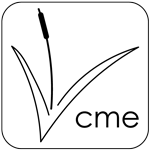What is Keeping?
One thing at any rate we know with certainty, that no teaching, no information becomes knowledge to any of us until the individual mind has acted upon it, translated it, transformed, absorbed it, to reappear, like our bodily food, in forms of vitality. Therefore, teaching, talk and tale, however lucid or fascinating, effect nothing until self-activity be set up; that is, self-education is the only possible education; the rest is mere veneer laid on the surface of a child's nature. (Mason, Vol. 6, p. 240-emphasis mine)
To Make Something One's Own Possession...
Unlike veneer, a surface covering that presents an attractive but often misleading facade, we aspire instead to the abundant life that begins from within and is characterized by growth and by a character and conduct transformed into Christ-likenss.
Charlotte Mason makes it clear that learning must get past the outer court of the mind in order to become assimilated by the learner. And just like bodily food, whose nutrients are only available for the body's use when they are digested and assimilated, so it is, too, with the life of the mind.
Very simply, 'keeping' refers to those efforts of self-activity that take place on a blank piece of paper. Why blank? Because the efforts must be made by the learner; it is self-education, after all. The teacher/parent can no more accomplish learning for another as she can digest her child's food for them. Keeping is not about a product, but about a process. Like narration, keeping sustains our attention in order for the mind to act on new ideas encountered in 'books and things'.
We 'keep time' or 'keep the feasts' by observing them and participating with them. So, we must observe and enter into and participate with ideas.
The Value of Narration.—The simplest way of dealing with a paragraph or a chapter is to require the child to narrate its contents after a single attentive reading.
Other Ways of using Books. — But this is only one way to use books: others are to enumerate the statements in a given paragraph or chapter; to analyse a chapter, to divide it into paragraphs under proper headings, to tabulate and classify series; to trace cause to consequence and consequence to cause; to discern character and perceive how character and circumstance interact; to get lessons of life and conduct, or the living knowledge which makes for science, out of books; all this is possible for school boys and girls, and until they have begun to use books for themselves in such ways, they can hardly be said to have begun their education. (Vol. 3, p. 180)
A commonplace book. A history chart or timeline. A nature journal. A labeled diagram. A list. Marginal notes. A set of questions. A diagram. An illustration. A written response or reflection. A few lines of verse retelling an event or idea or written in the style of another. An essay.
Put pen to paper and allow the mind to savor and chew.
...Over Time
There are clues for us nuanced in the term 'keeping'. It does mean to make or keep something as one's possession. But it also implies a condition of time. We do not take possession for only a moment, but there is a lasting quality. It is something that happens not all at once, but over time. It is a sustained effort.
A term that comes to mind is 'housekeeping'; how well we all know the repeated effort that entails.
Our 'keeping' should reflect this sustained effort. It is akin to keeping a collection; one piece acquired and added to the others over time. Here are some examples of a similar task performed repeatedly:
- A commonplace book - a collection of sayings
- A Book of Firsts - a collection of first roses or first birds or first new moons in your neck of the woods
- A Book of Centuries - a collection of people and events ordered in time
Perhaps, though, the collection revolves more around the object than the task performed.
- A Science Journal - a collection of lists, diagrams, definitions, etc. that all help illustrate ideas in science
- A Math Journal - a collection of graphs, drawings, equations that demonstrate the beauty and order of the natural world
- A Prayer Journal - a collection of prayer requests and answers to prayer
- A Book Journal - a collection of quotes or responses for a specific book (a commonplace for their CM quotes?)
- An Enquire Within Book - a collection of 'how to' lists for sewing or housekeeping or cooking or...
The Living Page by Laurie Bestvater is an excellent resource. You will find the 'why' behind 'keeping' and explore the variety of 'keeping' examples used in Charlotte Mason schools.
